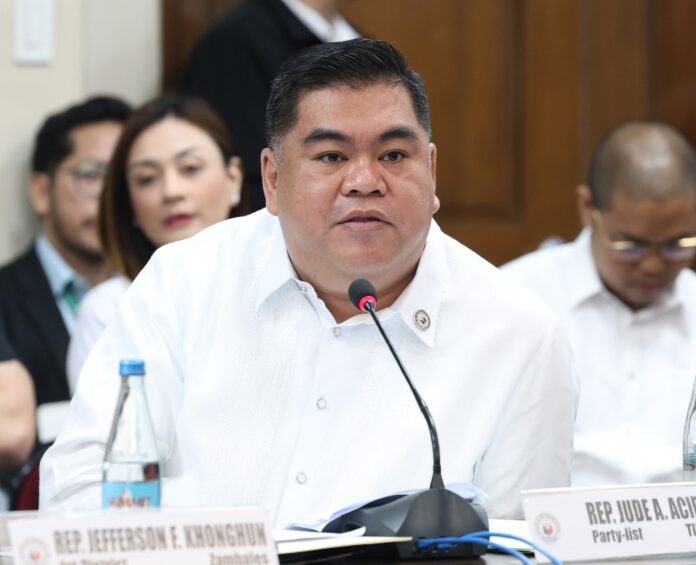The House of Representatives Committee on Overseas Workers Affairs approved a committee report on a substitute bill that seeks to establish a comprehensive, integrated, and sustainable reintegration program for overseas Filipino workers (OFWs).
The panel chaired by TINGOG Party-list Rep. Jude Acidre, made the approval after holding its final regular hearing for the 19th Congress Monday, addressing two major concerns affecting OFWs: the lack of long-term reintegration support for returning migrants, and the continued abuse of balikbayan box services by unregulated freight forwarders.
Consolidating several related measures, the bill lays out a full-cycle framework that provides livelihood assistance, employment facilitation, business development, financial access, and psychosocial services—beginning six months before an OFW’s return home.
“Reintegration isn’t just about giving them seminars or token programs,” Acidre said. “It’s about building a future they can look forward to.”
The proposed measure applies to all returnees—whether land-based or sea-based, documented or undocumented—and ensures that vulnerable groups such as senior OFWs, solo parents, and victims of abuse are not left behind.
Alongside the reintegration bill, the Committee continued deliberations on House Resolution No. 499, which calls for stronger action against fake and abusive freight forwarders.
These entities—often operating without proper accreditation—have long exploited OFWs by failing to deliver their balikbayan boxes, resulting in significant distress and financial loss for migrant workers and their families.
“They’re more than just packages,” Acidre said. “They carry love, sacrifice, and a reminder of home. When someone messes with that—when someone abuses that trust—it’s more than a business problem. It becomes a moral one.”
To address these issues, the Department of Migrant Workers (DMW), together with the Department of Trade and Industry (DTI) and the Bureau of Customs (BOC), is finalizing a Joint Administrative Order (JAO) aimed at tightening regulatory oversight of sea cargo forwarders.
Among its provisions are stricter accreditation requirements, the mandatory registration of service contracts, penalties for non-delivery, and protocols for the recovery and release of abandoned boxes.
The JAO also introduces safeguards to prevent unauthorized consolidation activities involving OFWs abroad.
“Our goal is simple,” Acidre added. “To protect our OFWs, and to give them peace of mind knowing that their sacrifices won’t be stolen or taken advantage of.”
As the committee concluded its work for the 19th Congress, Acidre thanked fellow lawmakers, government partners, and OFW advocates for their collaboration throughout the term. He emphasized that the issues faced by migrant workers demand sustained commitment beyond legislation.
“Even as we close the chapter of this Congress, our mission continues,” Acidre said.








